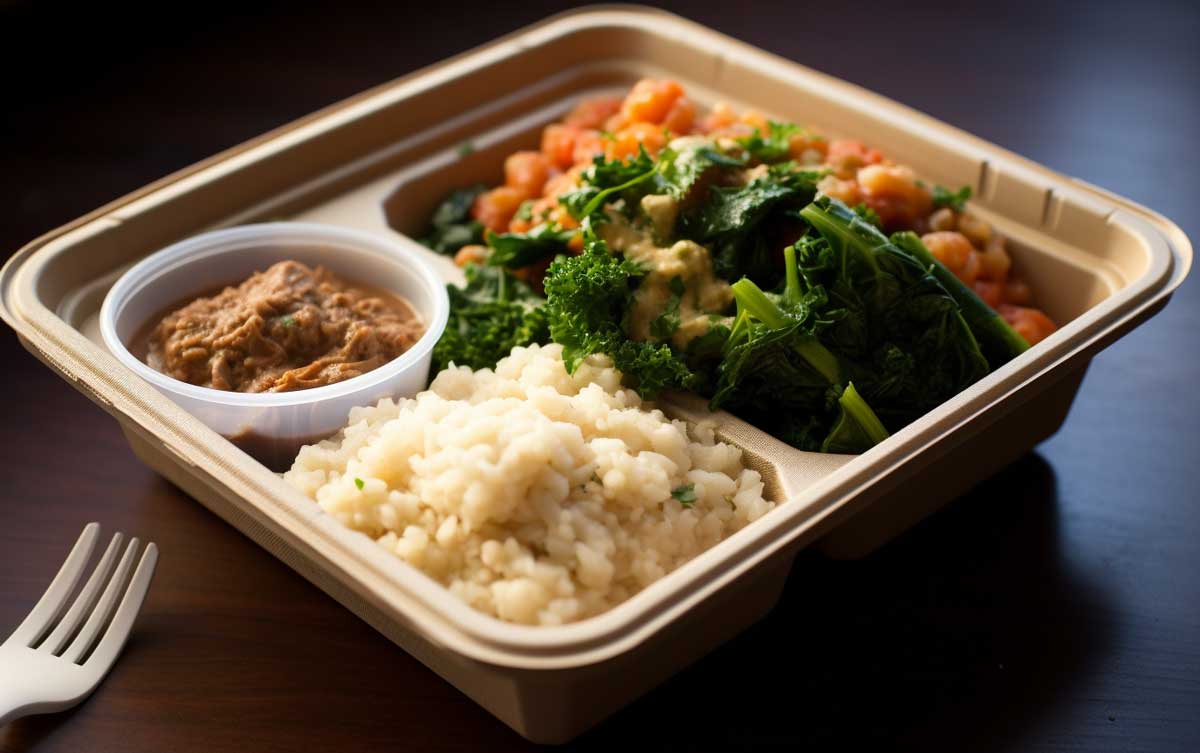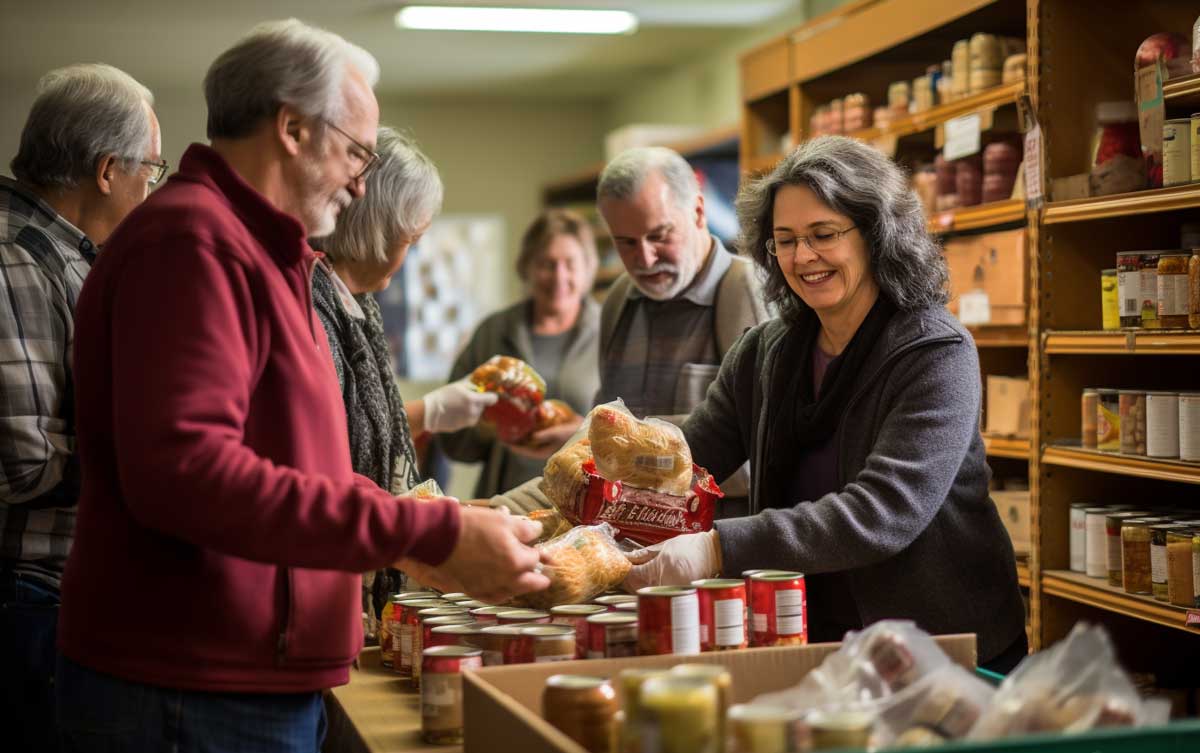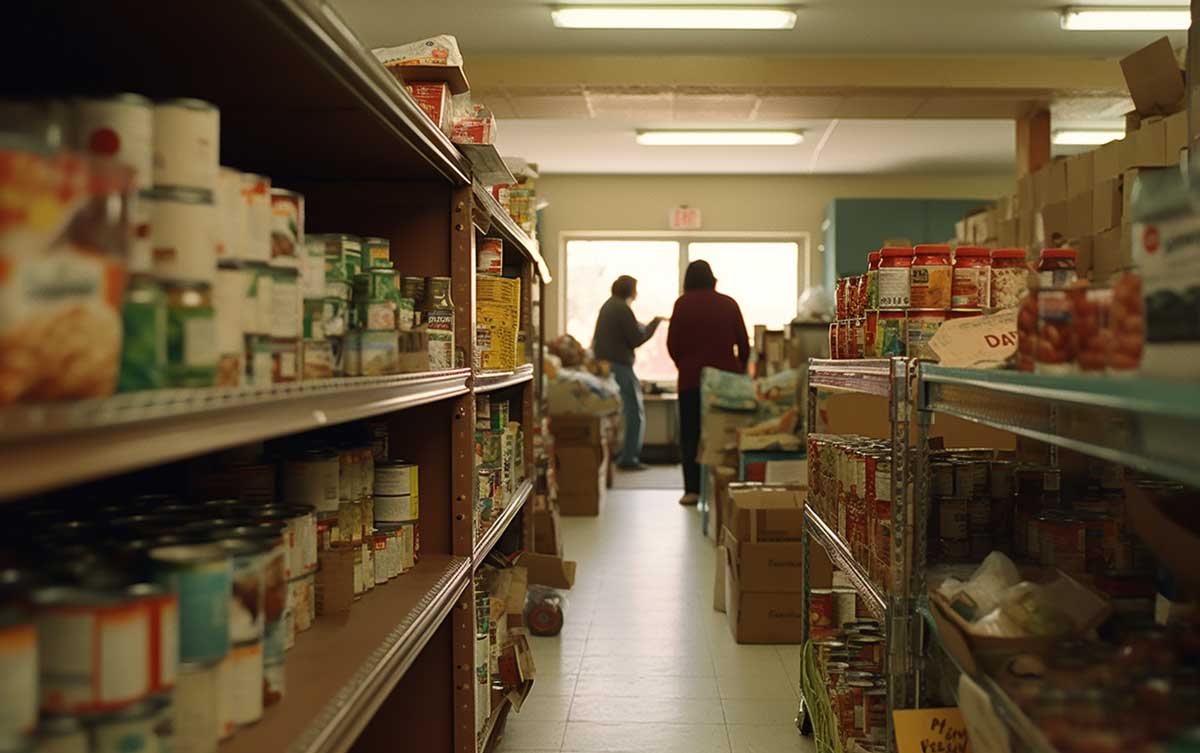We live in a time where ensuring our seniors and homebound individuals receive proper nutrition is paramount. This article will navigate through the complexities of meal delivery services available to them.
Meal Delivery Services
In today's fast-paced world, meal delivery services have emerged as a beacon of hope, particularly for our senior population and those confined within the walls of their homes. These services, developed with meticulous care, aim to deliver food and a nourishing experience right at the doorstep, ensuring that dietary needs are met efficiently and compassionately.
-
The Essence of Meal Delivery: At its core, the idea is simple but powerful. Ensure that every individual, irrespective of age or physical limitations, has access to balanced, wholesome meals. No more worrying about grocery shopping, meal prepping, or even cleaning up - it's all taken care of.
-
Types of Meal Services: The beauty of these services lies in their diversity. Depending on one's dietary preferences or medical needs, there's a service out there that’s the right fit. Some cater to vegans, while others prioritize low-sodium or diabetic-friendly meals. Moreover, cultural preferences, allergies, and even texture preferences (like pureed food) are often considered, ensuring a personalized dining experience.
-
Meal Types and Delivery: Choices abound regarding the meals one can order. Fresh meals that radiate home-cooked warmth, frozen options that can be stored for later, or ready-to-eat delights for those days when cooking seems like a herculean task – there's something for every mood and need. And the best part? The delivery processes are streamlined to perfection. From tracking your meal's journey to ensuring contactless delivery in sanitized packaging, every step is designed with the user's well-being in mind.
-
Additional Services: Many meal delivery providers recognize that nourishment isn’t just about the food on the plate. Hence, they've diversified to offer value-added services. Whether delivering specially curated pet food to ensure your furry companion doesn't feel left out or providing enlightening nutrition education sessions to help you make informed food choices in the future – these thoughtful additions amplify the overall experience.
Meal delivery services are not just about convenience; they're a holistic approach to nutrition, health, and well-being. They capture the essence of caring, one meal at a time.
Eligibility Requirements
Diving into the vast world of meal delivery services, especially those designed to cater to our senior and homebound population, demands a comprehensive understanding of the various eligibility benchmarks set by these programs. These criteria are tailored to ensure that the services are extended to those in need, facilitating their health, well-being, and daily nourishment.
Age Requirement
These meal programs primarily orbit around the senior demographic. The logic behind this is straightforward: the twilight years come with their own sets of challenges, many of which can make routine tasks like cooking a daunting venture.
So, as a guiding rule, these delivery programs predominantly target individuals aged 60 and above. This age-specific approach ensures the delivery services are focused, zeroing in on senior care and providing specialized meals that cater to their unique dietary requirements.
Medical Conditions
The saying "health is wealth" has never been truer, especially when exploring eligibility for meal delivery services. When considering potential beneficiaries, many service providers meticulously assess the health landscape of an individual.
-
Why Health Matters: Aging isn't just about counting years. With age, one's physical capacities often decline. Certain medical conditions can turn everyday chores, such as grocery shopping or meal prepping, into insurmountable challenges for seniors. The physical strain, cognitive challenges, or even the simple task of standing for prolonged periods can be taxing.
-
Common Conditions: Several health conditions can immediately prioritize seniors for such services. This includes individuals with various disabilities, those suffering from chronic illnesses, or even those with cognitive limitations that might hinder everyday tasks. Recognizing these challenges, meal delivery services are keen to step in, providing nourishment at their doorstep.
Financial Need or Food Insecurity Status
While the intent is noble, these services also need to ensure they reach out to those genuinely in financial need. Monetary constraints can be pivotal in defining one's accessibility to nutritious meals.
-
Demonstrating the Need: Not everyone qualifies. The criteria are strict to ensure that the services reach the most vulnerable. Showing significant financial need or proving food insecurity status becomes paramount.
-
Determining Factors: How does one define 'need'? Typically, various determinants come into play. This could range from one's income brackets recurring expenses, to even their current enrollment in other food aid programs. A comprehensive assessment ensures that assistance is not diluted and reaches those who stand to benefit the most.
Other Considerations
But there's more beneath the surface. Beyond the apparent eligibility guidelines, there are other nuances to consider.
-
Extra Services: The scope of some of these services extends beyond just food. They recognize that there might be other ancillary needs. Whether it's delivering pet food for a beloved feline or canine companion or providing transportation for other essential errands, they have it covered.
-
Dietary Options: The world of diet has seen a revolution. For health reasons or personal choices, many are now opting for Vegan, Gluten-Free, or other specialized diets. Recognizing this, many services now offer various dietary options to cater to these specific needs.
-
Special Provisions: Life can be unpredictable. Recognizing this, some services have provisions for emergency meals. Additionally, for certain specialized services, they might also require referral letters or other assessments to fine-tune their offerings.
In essence, while the world of meal delivery services for seniors and the homebound seems straightforward, the intricacies involved demand a deeper understanding. Armed with this knowledge, one can navigate this space with confidence and clarity.
How to Apply for Meal Delivery Services
If the idea of having nutritionally balanced meals delivered right to your doorstep appeals to you, especially if you fall within the senior or homebound demographic, you're probably thinking: How do I get started? Luckily, the process, while comprehensive, is quite straightforward. Let's embark on a step-by-step walkthrough to get you started.
Contact Local Senior Centers and Government Agencies
Your first pit stop in this journey should be your local institutions, often repositories of valuable information about such services.
Where to Start
Begin with local senior centers. These centers are not just social hubs for the elderly; they're also treasure troves of information, especially about services catered to their age group. Alongside, don't forget to reach out to local government agencies.
They often partner with or have knowledge of, various meal delivery services that are available in the area. These agencies have detailed insights into the application processes, the various documentation required, and even the timelines you might be looking at.
The Role of Area Agencies on Aging (AAAs)
AAAs hold a pivotal position in the hierarchy of services tailored for seniors. Funded at the federal level, they primarily focus on the nutritional needs of the elderly. As a cornerstone of many community health efforts, AAAs have programs that not only provide meals but also offer nutritional guidance, workshops, and more.
If you're looking for a comprehensive solution that covers meals and more, visiting or contacting your local AAA can be immensely beneficial. They can detail the spectrum of services they offer, and eligibility criteria, and even provide testimonials or case studies of individuals who've benefitted from their programs.
Diving into the world of meal delivery services doesn't need to be daunting. By starting local and leveraging the resources at your fingertips, you can ensure you have access to nutritious meals tailored to your needs. With a systematic approach, this transition can be both seamless and rewarding.
FAQs
1. How do I start my application process for meal services?
Begin by contacting local senior centers or government agencies.
2. What is the general age criterion?
Mostly, individuals aged 60 or above qualify.
3. Can my health condition make me eligible?
Yes, certain disabilities or chronic illnesses can qualify you.
4. Is there a financial assessment?
Absolutely! Factors like income, expenses, and other food assistance programs are considered.
5. Are there any special services?
Some services offer pet food delivery, emergency meals, and other benefits.
Conclusion
Navigating through the world of meal delivery services need not be daunting. By understanding the eligibility criteria and knowing where to apply, our seniors and homebound individuals can enjoy nutritious meals without a hitch.
Are you thinking about meal kits that accept EBT? Read more about your options and accessibility from our blogs at Gov-Relations.







